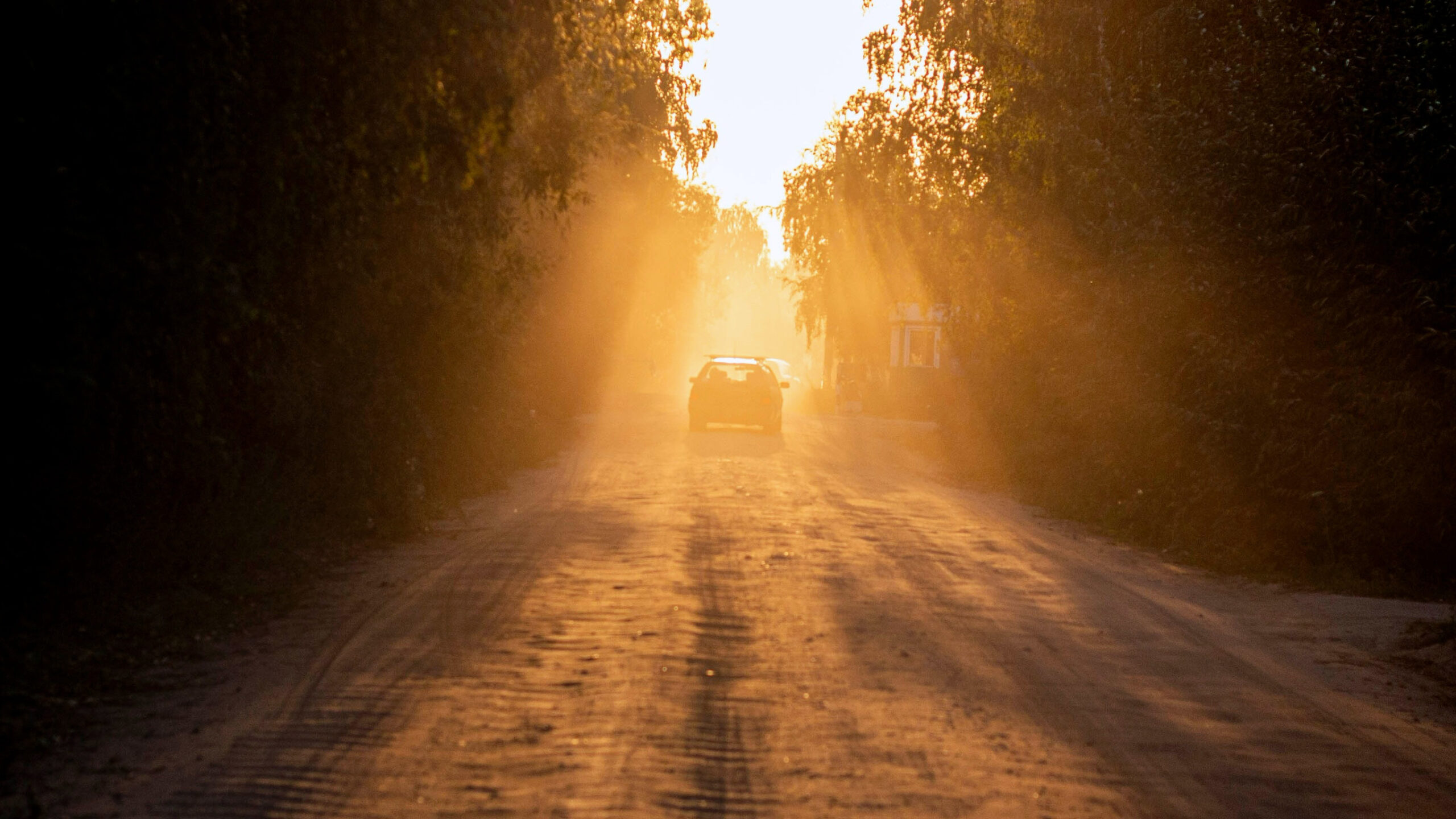
How to Pluck the Hell out of a Heart
No mother tongue is as rich as the Southern one. Our words are musical, and poetry expresses them with soul-shaking force. Annie Woodford celebrates the songs we say.
an incomplete and personal history
for R.H.W. Dillard, who died this month
~~~
In the South, poetry is a form of survival. It is poetry despite. It comes from the mouths of poor people first and foremost. It is always elegy, always the haunted land, taken from native people, shaped by enslaved people. It is the bent note, the blue note, the legacy of lives erased from the official record. The language of Southern poetry belongs to the ancestors of the illiterate.
It is springtime at Hollins College in the mountains of Virginia, where generations of writers have been cultivated in a program started by the Jewish Southern literary scholar and writer Louis D. Rubin Jr. In the past, a grand copper beech tree by the chapel was burnished by new green leaves. I don’t actually remember that beech. By the time I went to Hollins in the late nineties, it had been cut down. I only saw it secondhand in a story told to our writing workshop by the late Virginia poet R.H.W Dillard, who loved trees and who, if the spirit persists, must also be in the trees — tulip poplar blooms swaying high above us, the “sibilance of sycamores,” as his poem “Talking to Trees” describes.
However, any conversation about Southern poetry, about gracious white-columned spaces like Hollins, must also include the grief of this land, the ghosts that haunt this antebellum space, the unmarked graves. A path through a back pasture, behind one of the horse barns at Hollins, still leads to a Black community which had historically supplied the labor that kept the lawns green velvet and packed the picnic baskets. The title of Tennessee poet Tiana Clark’s poetry collection resonates with the complicated feelings evoked by this lovely, painful landscape: I Can’t Talk About the Trees Without the Blood.
It is springtime at Hollins. Mississippi-born future poet laureate Natasha Trethewey reads about her mother as my mother sits beside me, my daughter a changeling swimming beneath my breast.
“This is the language of light”
— R.H.W. Dillard.
My Aunt Audrey gave me her copy of 101 Famous Poems when I was twelve, her maiden name written on the front page. I memorized Wordsworth and Poe like she had memorized Wordsworth and Poe like her mother had memorized Wordsworth and Poe. Her mother had come down from the mountains seeking work with her husband in all the new mills. She was glad to live in the town. She said farming rocks was just too hard. She said the mountains were lonely. She read the same books over and over again because there were no other books. She passed down words and pronunciation — hoodger, stob, peony with an accent hard on last syllable. She went to eighth grade over and over again because she could not afford to go to the private high school. She decoupaged a magazine clipping of Emily Dickinson’s “If I can stop one heart from breaking” on a wooden plaque for a nursery decoration for my brother’s room, then my room. I puzzled over the rhyme between “again” and “vain.” We loved words even in our poorly educated state. My mother’s English textbook from her time at the community college earning her RN was marked up with elegant marginalia, a map I learned to read by. Dylan Thomas’s “The Force That Through the Green Fuse Drives the Flower” had a Welsh richness to it that I recognize in my own tactile experience of language in Henry County, Virginia, where we come down hard on consonants at the ends of words and turn “going to” into “gone” — as in “I’m gone get my work done.”
Edgar Allan Poe’s “Ulalume” and the splitting between the speaker and the soul is a riddle I try to solve while my high school economics teacher shames us for saying “gravels,” while an entire generation of our parents lose blue-collar jobs in the textile and furniture mills that will never be replaced. No more pensions. No more middle-class aspirations of a piano in the living room, fruit trees in the side yard. I never forget R.H.W. Dillard’s poem “Raven” about Poe: He was an excellent soldier at West Point, but was too poor to stay.
My mother worked two twelve-hour weekend shifts at the nursing home to send me to Hollins. She was a home-visit nurse for the health department during the week.
My mother worked two twelve-hour weekend shifts at the nursing home to send me to Hollins. She was a home-visit nurse for the health department during the week. One of her patients was a retired Wake Forest humanities professor who had moved back to Franklin County, Virginia, where Posey Rorer, Charlie Poole’s club-footed fiddler with a raw clean line, was from. Posey. Those old names like bouquets.
The professor’s mother had been the town milliner. He had fixed up the family log cabin with silk panels in the sleeping loft. A real silver cream pitcher on the mantel (“Country people wouldn’t hang a wagon wheel on their wall. They liked pretty things,” the professor said). He gave Mama his old New Yorkers to bring home to me, at fifteen. I read Joseph Brodsky’s essay about Frost, “On Grief and Reason.” A great and glittering darkness opened up. My mother found the professor’s mother’s milliner’s mirror in a junk shop years later, and it now leans against the wall in my daughter’s room. The professor was named after a Civil War general’s father. He lived alone all of his life, there being many ways to be lonely and forced into being lonely in the rural South.
What do we have to fear?
What do we have to fear?
What do we have to fear?Not a goddamn thing.
There, there.
— from R.H.W. Dillard’s “Radical Primaticism”
The rural is worlds away from centers of cosmopolitanism and yet is also the place where plant names are known. Shakespeare is the poet of common wildflowers, of country knowledge. R.H.W. Dillard makes multiple references to “jewelweed” in his poems, a native plant.
My whole female family had a sentimental attachment to verse, fragments kept in pretty books, on slips of paper in their perfect working-class girl Palmer script. Eleanor Minty, the next-to-youngest sister, was a high school graduate who went to work for the Social Security Administration in Memphis. (Roosevelt like a Valentine on all their newly well-fed lips). But Audrey Jayne, the sister-artist to my mama, studied under writer David Huddle in the 1980s while getting her master’s in teaching at Radford University. She gave me books to read that disturbed me, made me gasp. I puzzled over The Girl in the Midst of the Harvest by the Georgia-born poet Kathryn Stripling Byer and how the words “Great grandmother carried the cadence of Genesis.”
My aunt Eleanor Minty had a cross-stitched maxim hanging in her paneled basement: “But to be young was very heaven —” with the word Wordsworth underneath. A fragment I would later find the whole of: “Bliss it was in that dawn to be alive / But to be young was very heaven.”
My aunt Eleanor Minty had a cross-stitched maxim hanging in her paneled basement: “But to be young was very heaven —” with the word Wordsworth underneath. A fragment I would later find the whole of: “Bliss it was in that dawn to be alive / But to be young was very heaven.”
Somehow all those women sent me to Hollins where I was in a tutorial with R.H.W. Dillard in the pretty new library that he told us was like a creaking cruise ship among dogwoods and cedar trees, meeting in a glass-walled room with a round window like a porthole to blue skies. It was cheaper for me to go to Hollins than the cheapest public university in Virginia. Generous alumni, The Last Girls, as the Virginia-born Lee Smith called them in her novel, each adding their own architectural verse to the library. A classmate from U Penn corrects my pronunciation of apricot, peony, aunt, Appalachia. Apricot, peony, aunt, Appalachia. R.H.W. Dillard says, “That’s a very Virginian pronunciation.” Apricot, peony, aunt, Appalachia are as real as hard candy in my mouth. Mother. Mother tongue. I come to see them as my words, mine as much as my memory of my grandmother’s sheets thrown over heavy blossoms to protect her peonies from frost. We were poorly educated, but we loved our verse. Our Frost. Our frost. Hoar frost. Eastern Kentucky songwriter Tyler Childers captures this wholeheartedness in the opening lines of “Shake the Frost” —"And I love you like the mountains / Love the way the morning opens.” We always had song. Nursery rhymes. Poet Maurice Manning (another delicious Kentucky voice) and his “little foxes suckin on the bones o.”
Or, as Manning writes in his poem “Giddyup, Ye Banties!”: “That’s what we’ve been talking about, / how to pluck the hell out of the heart.”
I write this on the day after one of the great beloved poet-teachers of the South has passed away, R.H.W. Dillard, middle names “Henry” and “Wilde,” first name “Richard.” He was named after a Confederate ancestor, but he named the battle flag dishonor. He taught at Hollins, an hour north and a world away from the factory town where I grew up. He told me there was poetry in describing the way my Aunt Lovelene washed hair in her beautician’s sink. Southern poetry must be this intersection of privilege and poverty.
The federacy I found in poetry is a federacy of place, lyric, and pain. “Desire Is a Federacy,” as Mississippi Latinx poet C.T. Salazar puts it,
of blood of wilting or willpower
whippoorwills
wanting like pulling a sword from deep
in a bloomed lily.
Hollins was a women’s college where “with marriage comes a maid” a generation before, but for me it was the place where I was taught to speak plainly. Advice from another Hollins teacher, a wild-haired scholar of Chinese poetry educated at Duke: “Lay off the Romantics, kid. Here’s some Thomas Lux.” My journey was becoming how to honor the way my barely lettered grandmothers spoke. Said-Songs, as A.R. Ammons called the fragments of colloquial speech he elevated into verse, were everywhere.
I remember mondegreens and elegies sung by memory. “Wildwood Flower” and “The Prisoner’s Lament” were my lullabies. Mama’s voice in my ear was faithful to Mother Maybelle Carter’s mondegreen of the original ballad. Mother Maybelle sings, “I will twine with the mingles and waving black hair,” which she had probably learned in mountain-tongue as a passed-down mishearing of “I will twine mid the ringlets of my raven black hair.”
I went to the garden alone. Said Songs all over the place (thank you, Archie Randolph Ammons; I also had an uncle named Archie, night watchman and maybe a bit of union buster for Bassett Furniture. That story might be a mondegreen). The dew was still on the roses. I don’t know what got over me. I declare. I swanee. You gotta pay for your raisin’.
I went to the garden alone. Said Songs all over the place. The dew was still on the roses. I don’t know what got over me. I declare. I swanee. You gotta pay for your raisin’.
Said Songs and sung songs all over the place. If Southern poetry has a soundtrack it would have to include Tyler Childers’s “Feathered Indians.” Sam Cooke and OutKast. Hank Williams. Rhiannon Giddens.
My prize for a poetry award at Hollins was LSU Press’s collected poems of Robert Penn Warren, six inches thick. Warren’s “story of great distances, and starlight” leads to James Dickey, lying in real life and being heart-true in his poems. It leads to C.D. Wright’s runic “syntax of love” and the surveyor-poet and lover of Lucinda Williams, Frank Stanford. “This where I ran the dream-colored woods,” as North Carolina poet Tyree Daye writes in his “Ode to Small Towns.”
I had to look up the word “rube” after hearing Hannibal Lecter call Clarice Starling one, and I knew it applied to me. My grandmother cut sentimental verse out of the newspaper, brown curling messages from the dead I still sometimes find in old books. Ballads. Ballets. Raw old songs to rock your baby to. Popular verse for ladies with a literary bent — I read Longfellow at my aunt’s funeral, the underpinning of a trailer rattling in the wind while I spoke, two loose beagles tumbling over each other in a muddy yard next to the Brethren church where my mama’s people from Bassett are buried. Longfellow copied out by hand in my aunt’s, my mother’s, my grandmother’s Palmer script.
“Have you ever
crossed into the trees from the field”— C.T. Salazar
After reading Henry Hart’s biography of James Dickey, The World as a Lie, I know Dickey is from a different social class. I am a second-generation community college mill hick who grew up playing in her father’s yard full of junk cars, “wild to be wreckage forever” as in Dickey’s “Cherrylog Road.”
Airea D. Matthews’s poem of diaspora, “If My Late Grandmother Were Gertrude Stein,” struggles against the confines of poverty and all of its mutings to affirm the resilient wordplay at the heart of Southern speech: “Prison-pen / privilege. Prison. Privilege pinned. Bar-thorn pinned. Pine cross. Crown. / Weight. Weight. Wait. Iron is harder. Chicken fat can is full of spark.”
A revelation: Ellen Bryant Voigt, who was born in the county adjacent to the one where I grew up, deep in Bright Leaf country, reading in the Little Barn at Bread Loaf, breaking her Piedmont drawl down into piano syllables. Thelonious Monk’s left hand (he had to leave the South. Nina Simone had to leave the South. John Coltrane had to leave the South. Sam Cooke had to leave the South).
May the future of the South, however, be about being able to stay. May it be about Black joy, with Nikki Giovanni, Tennessee on her tongue, reminding us West Virginia was never the Confederacy. With Jericho Brown wreathed in flowers. With South Carolina’s Terrance Hayes making something new in his American Sonnets, “blue with beauty.” Yes, in the South poetry is a form a survival, but it also, as Alabama’s Poet Laureate Ashley M. Jones puts it, about “growing holy fruit.”
Annie Woodford's Gallery of Southern Poets
Click to explore their books
About the author
Annie Woodford is from a mill town in the Virginia Piedmont. She is the author of Bootleg (Groundhog Poetry Press, 2019). Her second book, Where You Come From Is Gone (2022), is the winner of Mercer University’s 2020 Adrienne Bond Prize and the 2022 Weatherford Award for Appalachian Poetry. Her work has appeared or is forthcoming in Cutleaf, MQR Mixtape, Gulf Coast Online, Southern Humanities Review, and Appalachian Review, among others.




















Though I’ve lived in the South for a full four decades, I’m not “of the South,” born and educated in Minnesota. This piece lends to a deeper understanding of the mystique, allure, and essence of the region and how its linguistic machinations shape worldview. Eloquent.